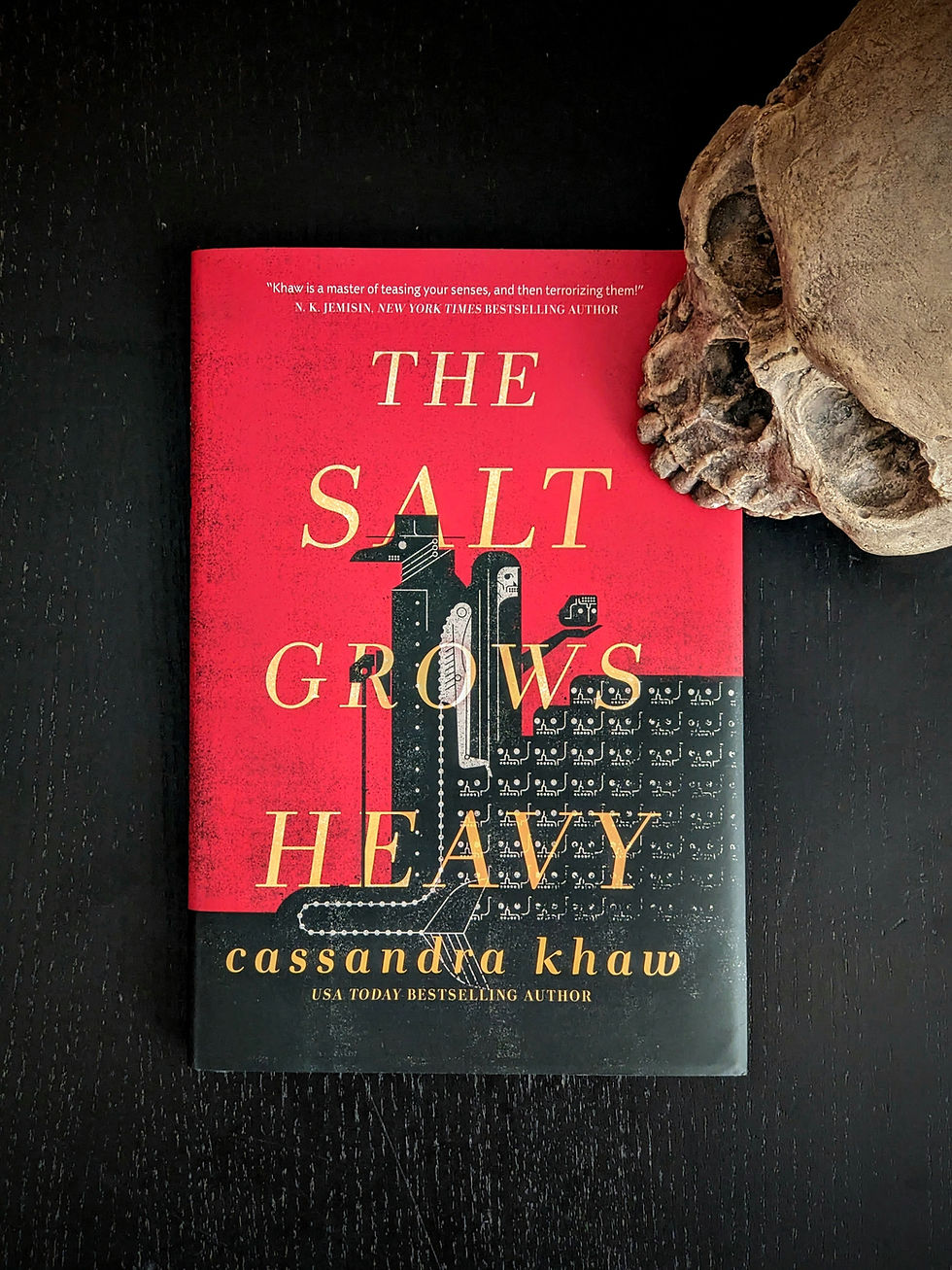The Salt That Grows Heavy Is My New Holy Grail
- Theo Prasidis
- Aug 18, 2023
- 2 min read

What I have been consciously, persistently, almost obsessively looking for as a viewer, listener or reader in recent years, are narratives that surrender completely and passionately to the otherworldly. Narratives where myth, dream and weirdness are not allegories, they are not vehicles to a different meaning, they are not ambiguous elements that are open to interpretation, they are not reflections in the mind of the hero, nor questions left to the reader’s judgment, but the objective reality, the only truth, the fundamental essence. Narratives where, in short, the fantastic is not a vague background on which the story is set, but the story itself. Therefore, Cassandra Khaw's The Salt Grows Heavy, which I discovered by accident when somewhere in the backwaters of the internet I stumbled across the futuristically primitive iconography of its cover by Morgan Sorensen, is my new Holy Grail.
In a timeless place, a mermaid who was forced into a violent land marriage with the prince not of a fairy tale, but of a nightmare, eats her husband, kidnapper and torturer alive, and leaves her hungry, newborn but already terrible daughters to devour the kingdom, to level it, to turn it into ashes. Unable to return to the dank abyss that was once her home, she decides to explore the world of man, enjoying her newfound freedom. Her unexpected companion on this journey: an asexual, mysterious plague doctor. Their wanderings in a mythical frozen taiga will quickly turn from idyllic to hellish, when they will encounter a community of bloodthirsty immortal children, and the three surgeon-saints they seem to worship.
In just 106 pages, Cassandra Khaw manages to build something truly unprecedented, a cosmology so authentically otherworldly that it captivates you, a novella unlike anything else out there. The Salt Grows Heavy is the first book that as soon as I finished reading, I re-read from the beginning. And I'm beginning to realize that its power comes from perfecting contrasts. Its prose is difficult, especially for non-native English speakers, but at the same time so softly poetic that it becomes addictive. Its violence is so indescribably hideous, that it it’s counterbalanced only by its incomparable beauty. At the center of its plot, the bezoar of its existence, an unlikely duo of two diametrically opposed creatures, fittingly lost in a foggy purgatory, yet sharing in common their monstrous, inhuman nature. Is there room for tenderness in a world that feeds almost exclusively on horror and revulsion? Hell, there is. And the result is a heartbreaking love sonnet, a small baroque masterpiece that seems like a piece of an arcane, beastly mythology, lost to people's memories.
“The physiology of my species is protean, unmetered by logic. When we breed with angels, our children accrete feathers. When we lay with hurricanes, we birth storms, wind-spirits with the voices of dead sailors. A thousand mythologies contributed to my conception. Who can say which of them was responsible for this miracle?”
A miracle, indeed.
Comments